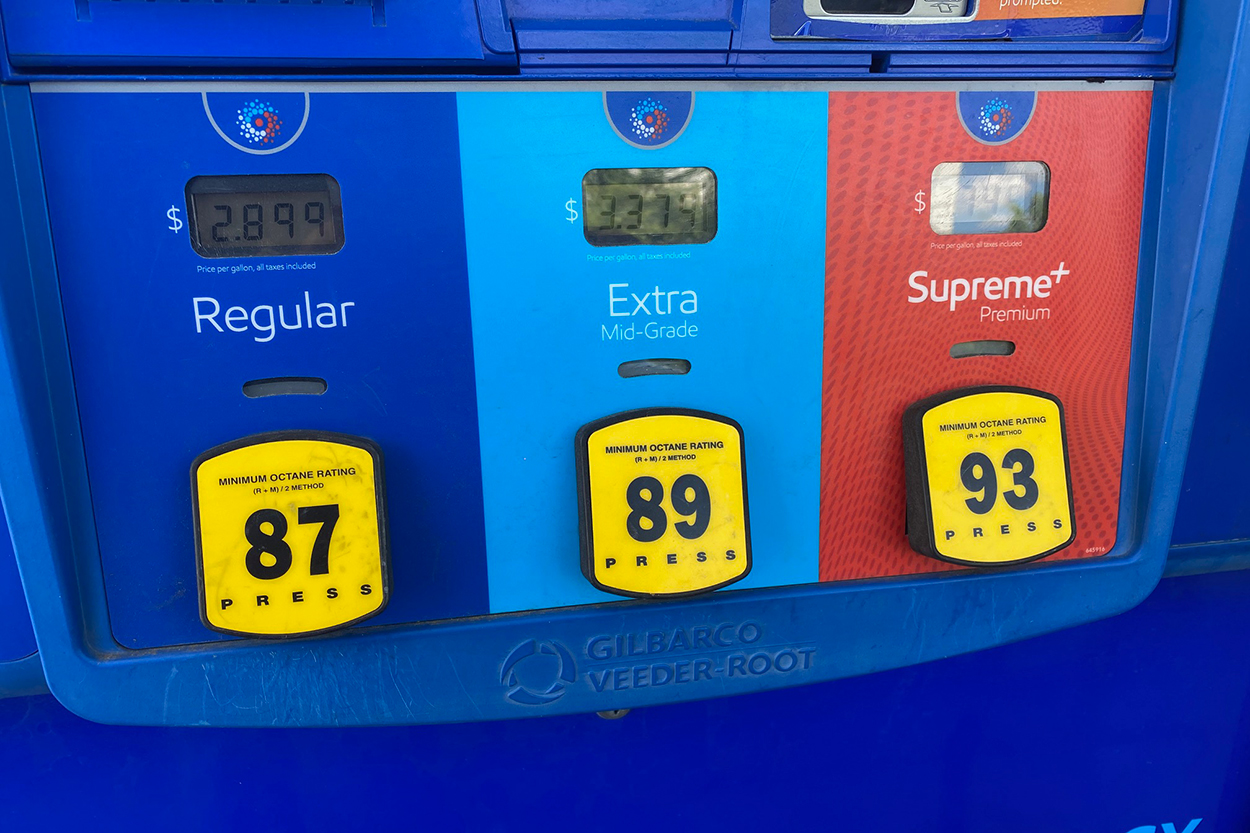When it comes to luxury sports cars, Porsche is a name that often comes to mind. Known for their high-performance vehicles, Porsche has built a reputation for excellence in the automotive industry. But for those considering purchasing a Porsche, one question remains: can it use regular gas?
Porsche vehicles are designed to deliver exceptional performance, and the type of fuel you use can have a significant impact on how well your car performs. While Porsche does recommend using premium unleaded gasoline for optimal performance, many models can still run on regular gasoline without any major issues.
However, it’s important to note that using regular gas in a Porsche may result in a slight decrease in performance. The engine may not run as smoothly, and you may experience a loss of power. Additionally, using regular gas may also lead to increased fuel consumption, as the engine may need to work harder to compensate for the lower octane rating.
In conclusion, while Porsche vehicles can run on regular gas, it is generally recommended to use premium unleaded gasoline for the best performance and fuel efficiency. By using the recommended fuel, you can ensure that your Porsche operates at its full potential and continue to enjoy the exhilarating driving experience that these luxury sports cars are known for.
- Why It’s Important to Know the Fuel Requirements for Your Porsche
- Ensuring Optimal Performance
- Preventing Engine Damage
- Saving Money on Fuel Costs
- Understanding the Fuel Requirements for Your Porsche
- Porsche’s Recommendations
- The Difference Between Regular and Premium Gasoline
- Can You Use Regular Gas in a Porsche?
- What to Do If You’ve Used the Wrong Fuel
Why It’s Important to Know the Fuel Requirements for Your Porsche

Understanding the fuel requirements for your Porsche is essential for maintaining optimal performance and avoiding potential damage to your vehicle. Porsche vehicles are designed to run on specific types of fuel, and using the wrong fuel can lead to engine problems and decreased efficiency.
One reason why it’s important to know the fuel requirements for your Porsche is that using the wrong type of fuel can result in engine knock or ping. This occurs when the fuel combusts prematurely in the engine, causing a knocking sound. Engine knock can lead to decreased performance and potentially damage the engine over time.
Another reason why it’s crucial to know the fuel requirements is that using the wrong fuel can result in reduced fuel efficiency. Different types of fuel have different energy densities, and using a fuel that is not recommended for your Porsche can lead to decreased mileage per gallon. This can result in more frequent trips to the gas station and increased fuel costs in the long run.
Furthermore, using the wrong fuel can potentially void your Porsche’s warranty. Porsche provides specific recommendations for fuel type, and using a fuel that is not in line with these recommendations could void any warranties or guarantees on your vehicle. This means that any repairs or damages resulting from using the wrong fuel may not be covered by the manufacturer.
To ensure that your Porsche continues to perform at its best, it’s essential to follow the fuel recommendations provided by Porsche. This information can typically be found in the owner’s manual or on the fuel door of your vehicle. It’s also a good idea to consult with a knowledgeable Porsche technician or dealership for any specific questions or concerns regarding fuel requirements for your particular model.
Ensuring Optimal Performance
When it comes to maximizing the performance of your Porsche, using the right type of fuel is crucial. While Porsche vehicles are designed to run on premium fuel, it is important to understand why this is necessary for optimal performance.
Premium fuel typically has a higher octane rating, which helps to prevent knocking or pinging in the engine. This is important because knocking can cause damage to the engine over time, leading to decreased performance and potentially costly repairs.
Using regular fuel in a Porsche can result in decreased power output and reduced fuel efficiency. The engine may not be able to perform at its full potential, resulting in slower acceleration and overall poorer performance.
In addition to the potential engine damage and decreased performance, using regular fuel in a Porsche may also void the vehicle’s warranty. Porsche recommends using premium fuel in their vehicles to ensure that they operate as intended and to maintain the warranty coverage.
While it may be tempting to save a few dollars by using regular fuel, the long-term consequences can outweigh the short-term savings. To get the most out of your Porsche and to ensure optimal performance, it is best to stick with using premium fuel as recommended by the manufacturer.
Preventing Engine Damage
Proper maintenance and choosing the right fuel for your Porsche are crucial steps in preventing engine damage. Regularly checking and changing the oil, filters, and spark plugs can help keep the engine running smoothly and efficiently. It is also important to follow the manufacturer’s recommended maintenance schedule and use high-quality parts.
Using the correct fuel is another key factor in preventing engine damage. Porsche vehicles are designed to run on premium gasoline, typically with an octane rating of 91 or higher. Using lower-octane fuel can cause knocking or pinging, which can lead to engine damage over time. It is best to always use the recommended fuel to ensure optimal performance and longevity of your Porsche’s engine.
In addition to using the right fuel, it is also important to be mindful of the fuel quality. Contaminated or low-quality fuel can cause issues such as clogged fuel injectors or fuel system damage. It is recommended to buy fuel from reputable gas stations and avoid filling up at stations that have recently received fuel deliveries, as this can increase the chances of getting contaminated fuel.
Proper driving habits can also play a role in preventing engine damage. Avoiding excessive idling, aggressive driving, and prolonged periods of high-speed driving can help reduce the strain on the engine and prevent overheating. It is also important to allow the engine to warm up before driving off, especially in colder temperatures, as this helps ensure proper lubrication and reduce wear and tear on the engine.
Regularly monitoring the engine’s temperature and paying attention to any warning signs or unusual noises can also help prevent engine damage. If you notice any abnormalities, it is important to have your Porsche inspected by a qualified mechanic to address the issue before it leads to further damage.
By following these tips and practicing proper maintenance, you can help prevent engine damage and ensure that your Porsche performs at its best for years to come.
Saving Money on Fuel Costs
With the rising cost of fuel, finding ways to save money on gas is becoming increasingly important. Fortunately, there are several strategies that can help you reduce your fuel costs and keep more money in your pocket.
One of the easiest ways to save money on fuel costs is to drive more efficiently. Avoiding sudden accelerations and decelerations, maintaining a steady speed, and using cruise control on highways can all help to improve your fuel efficiency. Additionally, reducing the weight in your vehicle by removing unnecessary items can also have a positive impact on your fuel economy.
Another way to save money on fuel is to take advantage of loyalty programs and discounts offered by gas stations. Many gas stations offer rewards programs that allow you to earn points or discounts on fuel purchases. By signing up for these programs and using them regularly, you can save money every time you fill up your tank.
Planning your trips and consolidating your errands can also help to save money on fuel. By combining multiple errands into one trip and avoiding unnecessary backtracking, you can reduce the distance you need to travel and, in turn, reduce your fuel consumption. Additionally, using navigation apps or websites to find the most efficient routes can also help to save fuel.
Regular vehicle maintenance is another important factor in fuel efficiency. Keeping your tires properly inflated, getting regular oil changes, and ensuring that your engine is running smoothly can all help to improve your fuel economy. Neglecting maintenance can lead to reduced fuel efficiency and increased fuel costs.
Lastly, consider carpooling or using public transportation whenever possible. Sharing rides with others can significantly reduce your fuel expenses, as well as the wear and tear on your vehicle. Public transportation, such as buses or trains, can be a more cost-effective option for commuting or traveling longer distances.
By implementing these strategies, you can save money on fuel costs and make your driving experience more economical. Remember, even small changes in your driving habits and routine can add up to significant savings over time.
Understanding the Fuel Requirements for Your Porsche
When it comes to fueling your Porsche, it is important to understand the specific requirements of your vehicle. Porsche vehicles are precision-engineered machines that require high-quality fuel to perform at their best. Using the correct fuel is not only crucial for optimal performance, but it is also essential for maintaining the longevity of your Porsche.
Most Porsche models require premium unleaded gasoline with an octane rating of 91 or higher. This high-octane fuel is necessary to ensure proper combustion in the engine and prevent knocking or pinging. Using a lower octane fuel can lead to decreased performance and potential engine damage.
It is important to note that some older Porsche models may require a higher octane rating, such as 93 or 95. Consult your vehicle’s owner’s manual or contact a Porsche dealership for the specific fuel requirements of your model.
In addition to the octane rating, it is recommended to use fuel that is free of additives or impurities. Porsche recommends using fuel that meets the specifications of the European standard EN 228 or the equivalent. Using fuel with low-quality additives or impurities can negatively impact engine performance and potentially lead to costly repairs.
While Porsche vehicles are designed to run on premium unleaded gasoline, it is important to avoid using alternative fuels such as E85 or diesel fuel. These fuels are not compatible with Porsche engines and can cause severe damage.
Overall, understanding the fuel requirements of your Porsche is essential for maintaining its performance and longevity. By using the correct fuel and following the manufacturer’s recommendations, you can ensure that your Porsche continues to provide an exhilarating driving experience for years to come.
Porsche’s Recommendations
If you own a Porsche, it is recommended to use the type of fuel specified by the manufacturer. Porsche vehicles are designed to perform optimally when fueled with high-quality gasoline. The use of regular gas may not provide the same level of performance and efficiency.
Porsche recommends using gasoline with an octane rating of 91 or higher. This is because higher octane fuels have a higher resistance to knocking, which can affect the engine’s performance and longevity. Using a lower octane fuel may result in reduced power and potentially cause engine damage over time.
In addition to using high-octane fuel, Porsche also recommends using fuel that does not contain ethanol. Ethanol-blended fuels, such as E10 or E15, may be more readily available and less expensive, but they can have negative effects on fuel system components and engine performance.
Porsche owners should also follow the manufacturer’s guidelines for fuel additives. Porsche recommends using fuel additives that are specifically formulated for their vehicles. These additives can help keep the fuel system clean, prevent deposits from forming, and optimize engine performance.
It is important to note that using the recommended fuel and additives is not only beneficial for performance but also for maintaining the warranty on your Porsche. The use of improper fuel or additives can void the warranty, so it is essential to follow the manufacturer’s recommendations.
Overall, Porsche’s recommendations for fuel and additives are aimed at ensuring optimal performance, efficiency, and longevity of your vehicle. By following these recommendations, you can enjoy the full potential of your Porsche and protect your investment for years to come.
The Difference Between Regular and Premium Gasoline
When it comes to filling up your car, you have probably noticed that there are different types of gasoline available at the pump. The two most common types are regular gasoline and premium gasoline. While both types are used to power vehicles, there are some key differences between the two.
Regular gasoline, also known as unleaded gasoline, is the most commonly used type of fuel. It has an octane rating of 87, which means it has a lower resistance to engine knock. Engine knock occurs when the air-fuel mixture in the combustion chamber ignites prematurely, causing a knocking or pinging sound. Regular gasoline is suitable for most vehicles and is often recommended by manufacturers for everyday driving.
Premium gasoline, on the other hand, has a higher octane rating, typically around 91 or 93. This higher octane rating means that premium gasoline has a higher resistance to engine knock. Premium gasoline is often recommended for high-performance vehicles or vehicles with turbocharged or supercharged engines. These types of engines generate more heat and compression, which can lead to increased engine knock if regular gasoline is used.
Using premium gasoline in a vehicle that does not require it will not provide any noticeable benefits. The engine will not produce more power or run more efficiently. However, using regular gasoline in a vehicle that requires premium gasoline can result in decreased performance and potential engine damage. It is important to check the owner’s manual or consult with a mechanic to determine the appropriate type of gasoline for your vehicle.
In addition to the octane rating, there may be other differences between regular and premium gasoline. Some premium gasoline brands may include additives that can help clean the fuel system and improve engine performance. However, the effectiveness of these additives can vary.
In conclusion, the main difference between regular and premium gasoline is the octane rating. Regular gasoline has a lower octane rating and is suitable for most vehicles, while premium gasoline has a higher octane rating and is recommended for high-performance or specialized vehicles. It is important to use the appropriate type of gasoline for your vehicle to ensure optimal performance and avoid potential engine damage.
Can You Use Regular Gas in a Porsche?
If you own a Porsche or are considering buying one, you may be wondering if you can use regular gas in your vehicle. The answer to this question depends on the specific model of Porsche you have.
Porsche models that are designed to run on regular unleaded gasoline include the Porsche Macan, Porsche Cayenne, and Porsche Panamera. These models are equipped with engines that are optimized to run on regular gas, and using premium fuel is not necessary.
However, if you own a high-performance Porsche model such as the Porsche 911 or Porsche Boxster, it is recommended to use premium gasoline. These models have engines that are designed for higher octane fuel, which can provide better performance and fuel efficiency.
Using regular gasoline in a high-performance Porsche may not cause immediate damage, but it can lead to decreased engine performance and potentially increase the risk of engine knocking or pinging. It is best to follow the manufacturer’s recommendations and use the recommended fuel for your specific Porsche model.
If you are unsure about the fuel requirements for your Porsche, you can consult the owner’s manual or contact a Porsche dealership for guidance. They will be able to provide you with the most accurate information regarding the fuel requirements for your specific model.
What to Do If You’ve Used the Wrong Fuel

If you’ve accidentally used the wrong fuel in your vehicle, don’t panic. It can happen to anyone, and there are steps you can take to minimize the damage and get back on the road quickly. Here’s what you should do:
- Stop the engine: As soon as you realize you’ve used the wrong fuel, stop the engine immediately. Continuing to run the engine can cause further damage.
- Don’t start the car: Even if the engine hasn’t been damaged yet, it’s best not to start the car again until the problem has been resolved.
- Call for assistance: Contact a professional fuel drain service or your roadside assistance provider to help you remove the wrong fuel from your vehicle. They have the expertise and equipment to perform the job safely.
- Do not try to syphon the fuel: It may be tempting to try to remove the wrong fuel yourself, but this can lead to potential hazards and further damage to your vehicle. Leave it to the professionals.
- Inform the fuel station: If you’ve filled up at a fuel station, let them know about the mistake. They may be able to provide guidance or assistance in resolving the issue.
- Get the vehicle checked: Once the wrong fuel has been drained, it’s important to have your vehicle inspected by a mechanic to ensure there is no lasting damage. They can check for any issues and make any necessary repairs.
- Prevent future mistakes: To avoid using the wrong fuel in the future, double-check the labels before fueling up and pay attention to the type of fuel your vehicle requires. It’s better to be safe than sorry.
Remember, using the wrong fuel can be a costly mistake, but by taking immediate action and seeking professional help, you can minimize the damage and get your vehicle back on track.









